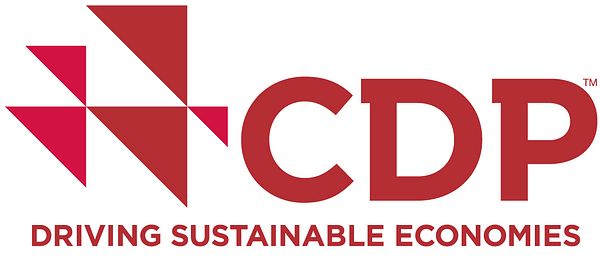Pressmeddelande -
Cities Eye Economic Potential in Partnering with Business on Climate Action
4 October, 2016: From Athens to Abuja, Stockholm to São Paulo, cities around the world are self-disclosing through non-profit CDP that the emergence of the low-carbon economy presents significant economic opportunity to collaborate with business, develop new industry sectors and build resilience.
This year 533 cities disclosed climate-related data through CDP, formerly the Carbon Disclosure Project. The vast majority of these cities identified over 1,000 economic opportunities linked to climate change, including 299 cities who are looking to develop new business industries, such as clean tech.
London, UK, discloses that the low-carbon market is worth at least US$33 billion to the city’s economy, and is among the cities seeking to grow new industries. Similarly, San Francisco, USA has identified economic potential from collaboration: “San Francisco would not have been able to reduce our greenhouse gas emissions without working collaboratively with numerous environmental partners including our business community,” says Mayor Ed Lee. “By working closely with businesses on sustainable initiatives and financing options, we have created new jobs, catalyzed new markets, and spurred new technologies, all while showing that climate action and a thriving economy can go hand-in-hand.”
This year’s disclosures also reveal that many cities are already actively looking to partner with the private sector on climate change: cities highlighted a total 720 climate change-related projects, worth a combined US$26 billion, that they want to work with business on. Cities in Africa, North America and Latin America show the greatest appetite for private sector collaboration, where 72%, 62% and 54% of cities respectively report seeking partnerships.
Examples include:
- Cape Town in South Africa seeking private sector collaboration on renewable energy projects, including schemes to enable companies to purchase wind generated electricity via Green Energy Certificates;
- Denver, USA is seeking business involvement on finding new or emerging technologies that could enable it to lower energy consumption within its existing municipal energy portfolio; And
- Quito, in Ecuador, is seeking US$800 million to deliver a waste management and water project that incorporates renewable electricity generation from three hydropower plants, with an installed capacity of 40 MW.
The findings feature in It takes a city: The case for collaborative climate action, a new report published by CDP and AECOM, and sponsored by Bloomberg Philanthropies, today. The report examines the emerging business case for city governments to collaborate with companies, investors and regional governments on addressing climate change.
Other key findings illustrate the potential for collaborative climate action between cities and business:
- Cities that collaborate with business are more likely to have an emissions reduction targets. Of the 190 cities with a GHG emissions reduction target, 74% are working with business; and
- The development of new businesses and industries was the most commonly cited economic opportunity by cities this year; and
- The top three climate-related project areas that cities are seeking private sector collaboration on are: energy efficiency/retrofits, renewable energy and transport.
Action by cities will be essential to achieving the ambitious goals of the Paris Agreement. Encouragingly more than 7,000 cities have made commitments through the Global Covenant of Mayors for Climate & Energy, the largest global coalition of cities on climate. Research by the C40 Cities’ Climate Leadership Group, featured in today’s report, highlights that in 75% of the cases where cities are prevented from taking climate action, collaboration with partners, such as the private sector, is needed. This, coupled with the reality that building low-carbon cities will require trillions of dollars’ worth of investments, means that collaboration with the private sector is essential.
Maia Kutner, head of cities at CDP, says: “Our report shows that cities do not need to go it alone when it comes to responding to climate change. They are recognizing there is power in numbers, which is why so many came together to form the Global Covenant of Mayors for Climate and Energy this June. By partnering with the private sector, cities can not only spur the growth of new markets, they can deliver even greater emissions reductions. Tackling climate change is an enormous business opportunity. The time has come for cities to seize it.”
“This data supports what we are seeing in our direct dealings with cities. Cities the world over are identifying their priorities to reduce emissions, adapt to climate impacts and increase resilience, but more and more they are looking for partners to help them realise the solutions,” says Ben Smith, director of sustainable development, AECOM.
ENDS
Notes to editors:
The economic opportunities data reported by cities in 2016 is available to view on CDP’s open data portal.
For media information:
Kharunya Paramaguru // Communications manager // + 44 (0) 20 3818 3916 // Kharunya.paramaguru@cdp.net
Zoe Tcholak-Antitch // Communications // +1 646-270-3675 // Zoe.antitch@cdp.net
Ämnen
- Miljö, energi
Regioner
- Stockholm
Carbon Disclosure Project, CDP, är ett samarbete mellan 827 institutionella investerare. CDP genomför världens största kartläggning av storföretagens ambitioner i klimat- och vattenfrågor, och att minska skövlingen av tropisk skog. Ett nordiskt sekretariat för CDP bildades år 2006 med säte i Stockholm. I år 2016 utfrågas över 250 nordiska företag om deras klimatpåverkan.
